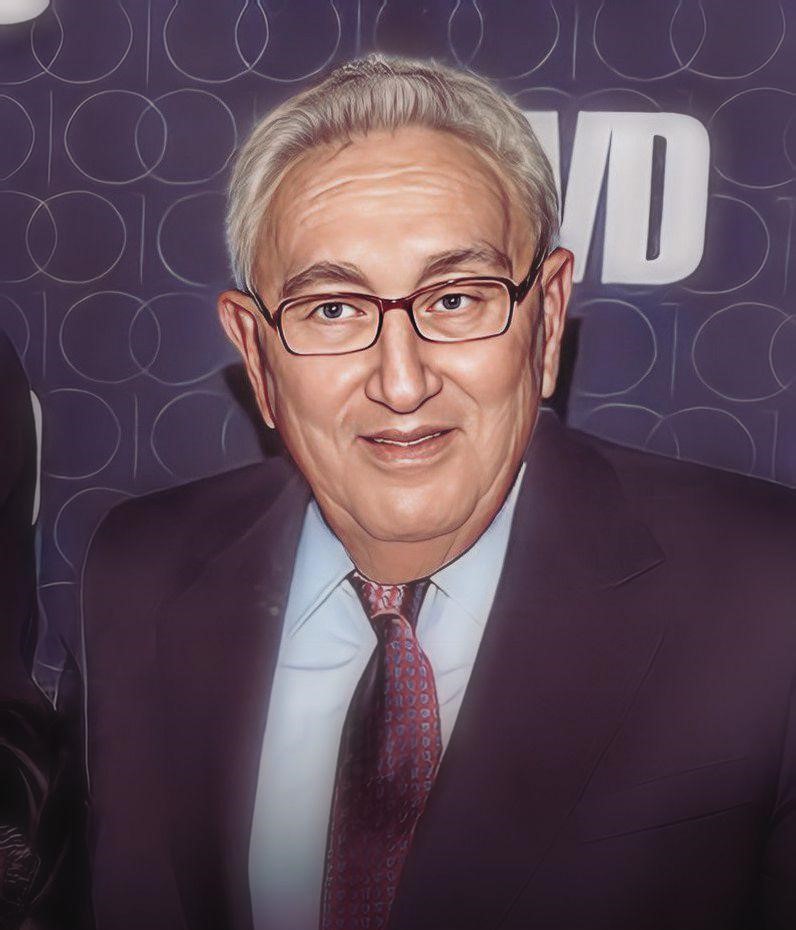What is the net worth of Henry Kissinger?
Henry Kissinger net worth is estimated to be US$ 50 Million.
| Net Worth | US$ 50 Million |
| Born | May 27, 1923 |
| Died | November 29, 2023 |
| Full Name | Henry Alfred Kissinger |
| Gender | Male |
| Height | 5′ 8” |
| Horoscope | Gemini |
| Country of Origin | Fürth, Bavaria, Germany |
| Source of Wealth | Politics, Consulting |
| Marital Status | Married |
| Spouse(s) | Nancy Maginnes (m. 1974) Ann Fleischer (m. 1949 – div. 1964) |
| Children | David Kissinger Elizabeth Kissinger |
| Nationality | American Germany |
| Famous For | His role in shaping U.S. foreign policy as the National Security Advisor and Secretary of State under Presidents Nixon and Ford. He is also known for his contributions to diplomacy and international relations, including his efforts to normalize relations with China and negotiate peace agreements in the Middle East and Southeast Asia. |
Henry Kissinger: Life, Achievements, and Legacy
Henry Kissinger, was a German born American diplomat, political scientist, geopolitical consultant, and politician. He is widely considered one of the most influential figures in American foreign policy during the second half of the 20th century. From advising presidents on foreign affairs to negotiating peace treaties, Kissinger played a significant role in shaping the geopolitical landscape of the time. In this article, we will delve into Kissinger’s life, his achievements, and his legacy.
Early Life and Education
Henry Kissinger was born in Fürth, Germany, on May 27, 1923. His parents were Jewish and fled Nazi Germany in 1938, immigrating to the United States. Kissinger enrolled at City College of New York and later transferred to Harvard University, where he earned a bachelor’s degree in political science. He went on to earn a master’s and Ph.D. in government from Harvard.

Academic Career
After completing his Ph.D., Kissinger became a member of the Harvard faculty and remained there until 1969. He became known for his scholarship on international relations and was a prolific writer, publishing numerous articles and books on foreign policy.
Government Service
Henry Kissinger began his government career in 1969, when he became the national security adviser to President Richard Nixon. He was responsible for providing advice to the president regarding foreign policy. Kissinger was a major influence on the U.S. Foreign Policy during the Cold War. He played a role in the opening of diplomatic relations with China, and signing arms control agreements with Soviet Union.
Kissinger became Secretary of State in 1973 by President Nixon. He held this position until 1977. He continued to be a major influence on U.S. Foreign Policy, and negotiated peace agreements with the Middle East, Southeast Asia, and other countries.
Foreign Policy Legacy
Henry Kissinger’s foreign policy legacy is complex and controversial. He is credited with some significant achievements, such as the opening of relations with China and the negotiation of peace agreements in the Middle East and Southeast Asia. However, he is also criticized for his support of authoritarian regimes in Latin America and Southeast Asia, and for his involvement in the secret bombing of Cambodia during the Vietnam War.
Despite the controversies surrounding his policies, Kissinger’s influence on American foreign policy during the second half of the 20th century cannot be denied.
Controversies and Criticisms
Henry Kissinger policies and actions have been the subject of much criticism and controversy. He has been accused of supporting authoritarian regimes and human rights abuses in countries such as Chile and Argentina. He has also been criticized for his role in the secret bombing of Cambodia during the Vietnam War and for his support of the Indonesian invasion of East Timor.
Later Years and Legacy
After leaving government service, Kissinger continued to be active in international affairs. He served as a consultant to various governments and was a sought-after speaker and commentator on foreign policy matters.
Today, Kissinger’s legacy remains a subject of debate and controversy. While some see him as a skilled and pragmatic diplomat who helped shape American foreign policy during a turbulent time, others see him as a Machiavellian figure who supported authoritarian regimes and undermined democratic values.

Famous Quotes from Henry Kissinger
The absence of alternatives clears the mind marvelously. — Henry Kissinger
Power is the great aphrodisiac. — Henry Kissinger
The task of the leader is to get his people from where they are to where they have not been. — Henry Kissinger
“The conventional army loses if it does not win. The guerrilla wins if he does not lose. — Henry Kissinger
The illegal we do immediately. The unconstitutional takes a little longer. — Henry Kissinger
Frequently Asked Questions about Henry Kissinger
Q. What did Henry Kissinger do for the United States?
A. Henry Kissinger served as the national security advisor and Secretary of State under President Nixon, playing a significant role in shaping U.S. foreign policy during the Cold War.
Q. What were Henry Kissinger main achievements in foreign policy?
A. Henry Kissinger is credited with opening relations with China and negotiating peace agreements in the Middle East and Southeast Asia.
Q. Why is Henry Kissinger controversial?
A. Henry Kissinger’s policies and actions have been the subject of much criticism and controversy, including his support of authoritarian regimes and human rights abuses in countries such as Chile and Argentina.
Q. What is Henry Kissinger’s legacy?
A. Henry legacy remains a subject of debate and controversy. While some see him as a skilled and pragmatic diplomat who helped shape American foreign policy, others see him as a Machiavellian figure who undermined democratic values.
Q. What impact did Henry Kissinger have on international relations?
A. Henry Kissinger’s impact on shaping U.S. foreign policy in the latter half of the 20th century is still felt today. His contributions to diplomacy and international relations cannot be ignored.
Conclusion
Henry Kissinger was a towering figure in American foreign policy during the second half of the 20th century. His legacy is complex and controversial, reflecting the complex geopolitical landscape of the time. Whether seen as a skilled diplomat or a Machiavellian figure, his influence on American foreign policy cannot be denied. His impact on shaping U.S. foreign policy in the latter half of the 20th century is still felt today. Regardless of the controversies surrounding his policies, his contributions to diplomacy and international relations cannot be ignored.










